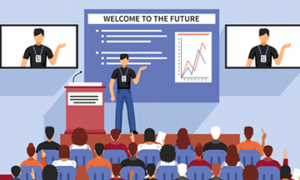Entrepreneurship Process and Behavior Course
Course Fee:
OBJECTIVE
• To explain the basics of entrepreneurial behaviour, opportunities and the entrepreneurial process,
• Identify cognitive biases that influence entrepreneurs’ decision making and apply techniques to avoid them,
• Explain common decision heuristics used by entrepreneurs,
• Describe elements which make up a viable business model and explain how (and to what extent) these elements interrelate,
• Outline that new venture creation is based on numerous assumptions, that its process is one of testing those assumptions to turn them unto knowledge, and that this learning process typically involves business model change,
• Construct and refine business models for new ventures,
• Write down a final business report concisely, with clarity, logical flow, and coherence,
• Present and discuss their new venture creation progress in class,
• Discuss critically research papers on topics in entrepreneurship,
• Identify a research gap in the entrepreneurship literature
CONTENT
• Foundations of Entrepreneurial Behaviour
• The entrepreneurial process
• Entrepreneurial opportunities: Prevalence, types and different views
• Who becomes an entrepreneur? The role of personality and prior knowledge
• How do entrepreneurs think? The role of cognition and creativity
• How do entrepreneurs decide? The role of decision-making heuristics
• How do entrepreneurs start a business? The role of causation and effectuation Course
• New Venture Creation
• Principles for starting a business: business model canvas, design thinking, lean start-up
• Developing an idea for a business
• Turning assumptions into knowledge
• Value creation
• Getting first customers
• Validating the business model Course
• Researching entrepreneurial behaviour
• Discussion of research papers on entrepreneurial behaviour
• Identifying a research gap
• Develop a research strategy
Methodology
The training methodology integrates lectures, interactive discussions, collaborative group exercises, and illustrative examples. Participants will acquire a blend of theoretical insights and hands-on practical experience, emphasizing the application of learned techniques. This approach ensures that attendees return to their professional environments equipped with both the competence and self-assurance to effectively implement the acquired skills in their responsibilities.
DATE:
1ST BATCH: 21st – 24th Jan,2025
2ND BATCH: 20th – 23rd May,2025
3RD BATCH: 7th – 10th Oct,2025
DATE:
1ST BATCH: 13th – 16th Jan, 2026
2ND BATCH: 5th – 8th May, 2026
3RD BATCH: 1st – 4th Sep, 2026
Course Category
- Human Resource and Admin
- Finance and Accounting
- Internal Audit and Fraud Control
- Stores, Procurement and Supply Chain
- Information Technology
- Aviation and Maritime
- Banking, Investment and Insurance
- Business Communication
- Construction Management & Civil Engineering
- Engineering, Instrumentation and Maintenance
- Entrepreneurship and Business
- Hotel & Hospitality Management
- Law and Contract Management
- Management and Leadership
- Project Management
- Public Relations
- Public Sector
- Sales, Marketing & Customer Service
- Secretaries & Personal Assistants
- Transport & Logistics
- Security and Safety
More Courses
VENUE
25, Queen street, Alagomeji Bus Stop, Yaba, Lagos










